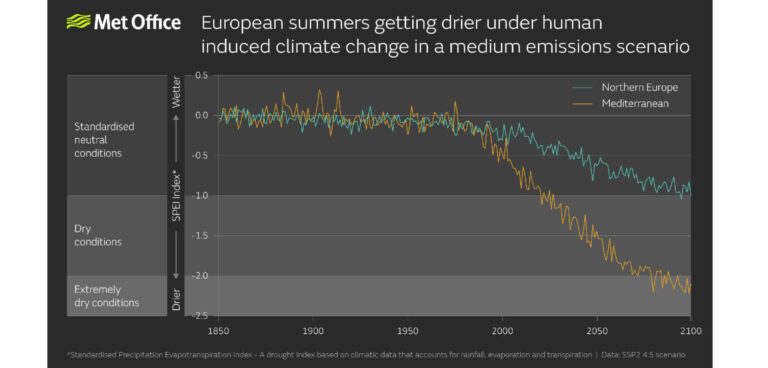A new study from the UK’s Met Office projects that summers across most of the European continent will become drier through the century. Furthermore, human-induced climate change is expected to increase the frequency of extremely dry conditions across all of Europe.
Dr Nikos Christidis and Prof. Peter Stott of the Met Office Hadley Centre assessed how human-induced climate change has influenced the trend of wet and dry summers in Europe and looked at water availability and rainfall across north and south Europe by the end of the century.
The study analyzes not only summer trends and extreme events through modeling rainfall changes, but also considers the effect of temperature warming via changes in evapotranspiration, following SSP2 4.5, a medium emission scenario. Published in Science Bulletin, the results provide insight as to how communities will need to adapt as they prepare to see deficits in water availability and heatwave-related droughts.
Dr Christidis explained, “We are expecting to see significant changes in European summers as a result of human-induced climate change. Summers may become a lot drier and this shift is expected to become more prominent as we move through the century.”
The only places where the chance of wetter summers remains through the next century were Scandinavia and the Alps. A net decrease in water availability across Europe poses challenges to all regions.
Perhaps the most striking finding of the study is that under the medium emissions scenario (whereby rainfall and temperature were modeled), there would be a move to a new climatic regime across Northern and Southern Europe where both regions would see an increase of the frequency of extremely dry summers, up to several times a decade, which would otherwise be rare in the pre-industrial world. This is particularly true for Southern Europe where the impacts are expected to be more severe.



